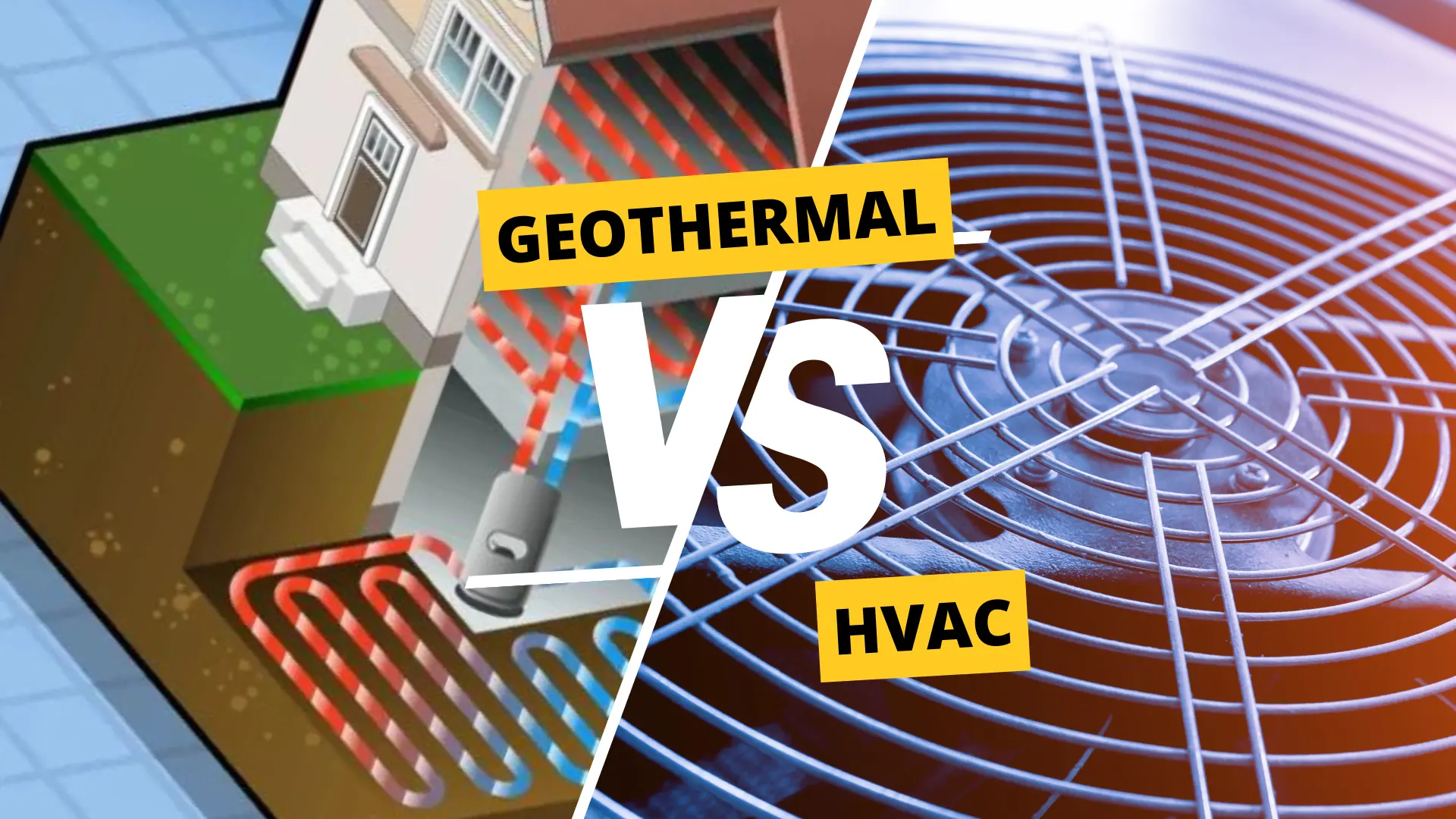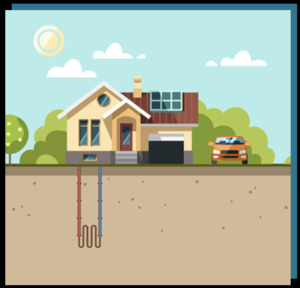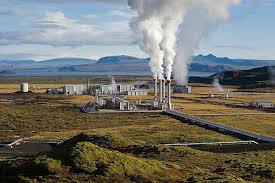In the quest for efficient, cost-effective, and environmentally friendly heating and cooling solutions, homeowners and businesses are increasingly considering alternatives to traditional HVAC systems. One such alternative that has gained significant attention is geothermal heating and cooling. This article provides a comprehensive comparative analysis between geothermal systems and traditional HVAC systems, focusing on three key aspects: efficiency, cost, and environmental impact.
Efficiency Comparison
Efficiency is a crucial factor in evaluating HVAC systems, as it directly impacts energy consumption and operating costs.
Geothermal Systems
Geothermal heat pumps (GHPs) are renowned for their high efficiency:
- Coefficient of Performance (COP): GHPs typically have a COP of 3.0 to 5.0, meaning they produce 3 to 5 units of heat for every unit of electricity consumed.
- Consistent Performance: Geothermal systems maintain high efficiency regardless of outdoor air temperature, as they exchange heat with the stable-temperature earth.
- Long-term Efficiency: The efficiency of geothermal systems tends to remain stable over their lifespan, with minimal degradation.
Traditional HVAC Systems
Traditional systems, including air-source heat pumps and furnace/AC combinations, have varying efficiency levels:
- Air-Source Heat Pumps: Generally have a COP of 2.0 to 3.5, which decreases in extreme temperatures.
- Furnaces: High-efficiency models can reach up to 98% AFUE (Annual Fuel Utilization Efficiency), but average systems are around 80-85% efficient.
- Air Conditioners: Measured by SEER (Seasonal Energy Efficiency Ratio), with modern units ranging from 13 to 25 SEER.
Traditional systems are more susceptible to efficiency loss due to outdoor temperature fluctuations and tend to lose efficiency over time more quickly than geothermal systems.
Cost Comparative Analysis

When comparing costs, it’s essential to consider both initial installation costs and long-term operational expenses.
Initial Costs
Geothermal Systems:
- Higher upfront costs, typically ranging from $10,000 to $30,000 for residential geothermal installations.
- Costs can vary significantly based on:
- Property size and geology
- Type of ground loop system (horizontal, vertical, or pond/lake)
- Necessary home modifications
Traditional HVAC Systems:
- Lower initial investment, usually between $5,000 to $10,000 for a complete system.
- Costs depend on:
- System size and efficiency rating
- Brand and model
- Complexity of installation
Comparative Analysis for Operational Costs
Geothermal Systems:
- Significantly lower operating costs due to high efficiency.
- Estimated 30-60% reduction in heating costs and 20-50% reduction in cooling costs compared to traditional systems.
- Minimal maintenance requirements, leading to lower long-term service costs.
Traditional HVAC Systems:
- Higher operating costs, especially in regions with extreme temperatures.
- More frequent maintenance and potential part replacements increase long-term expenses.
- Subject to fluctuating fuel prices (for gas or oil furnaces).
Return on Investment (ROI)
- Geothermal systems typically offer a ROI period of 5-10 years, after which significant savings accrue.
- Traditional systems have a quicker initial ROI due to lower upfront costs but higher long-term expenses.
Environmental Impact
As environmental concerns become increasingly important, the ecological footprint of HVAC systems is a crucial consideration.
Geothermal Systems
Advantages:
- Minimal direct emissions: GHPs don’t burn fossil fuels on-site.
- Reduced carbon footprint: Lower electricity consumption leads to fewer indirect emissions.
- No local air pollution: No combustion means no release of pollutants like nitrogen oxides or particulate matter.
- Water conservation: Closed-loop systems don’t consume water resources.
Considerations:
- Environmental impact during installation, especially for vertical loop systems that require drilling.
- Potential for ground temperature changes over long periods in poorly designed systems.
Traditional HVAC Systems
Impacts:
- Direct emissions: Combustion-based systems (e.g., gas furnaces) release CO2 and other pollutants.
- Higher electricity consumption: Leads to increased indirect emissions from power generation.
- Refrigerant concerns: Many traditional AC units use refrigerants with high global warming potential.
- Noise pollution: Outdoor units can contribute to ambient noise levels.
Mitigating factors:
- Advances in energy efficiency are reducing the environmental impact of newer models.
- Transition to more environmentally friendly refrigerants in modern systems.
Lifespan and Durability
The longevity of HVAC systems is an important factor in their overall value and environmental impact.
Geothermal Systems:
- Indoor components typically last 20-25 years.
- Ground loops can last 50+ years with proper installation.
- Minimal wear and tear due to protection from outdoor elements.
Traditional HVAC Systems:
- Average lifespan of 10-15 years for most components.
- Outdoor units exposed to weather conditions, leading to faster deterioration.
- More frequent need for replacement, contributing to resource consumption and waste.
Comparative Analysis Between Comfort and Performance
Beyond efficiency and cost, the quality of climate control is a key consideration for many users.
Geothermal Systems:
- Provide consistent temperatures with minimal fluctuations.
- Often praised for better humidity control.
- Quieter operation compared to traditional systems.
- Can be used for water heating, adding to their versatility.
Traditional HVAC Systems:
- Can struggle to maintain comfort in extreme weather conditions.
- May create noticeable temperature swings, especially in poorly insulated spaces.
- Generally noisier, particularly the outdoor units of air-source heat pumps and air conditioners.
Installation and Space Requirements
The feasibility of installation can be a deciding factor for many properties.
Geothermal Systems:
- Require significant outdoor space for ground loop installation (unless using a vertical system).
- Installation process can be disruptive, especially for retrofits.
- Not suitable for all properties due to geological or space constraints.
Traditional HVAC Systems:
- More flexible installation options, especially for retrofits.
- Require less outdoor space, typically just a small area for an outdoor unit.
- Can be installed in a wider variety of property types and locations.
Conclusion Comparative Analysis Summarized
Both geothermal and traditional HVAC systems have their place in the modern built environment. Geothermal systems excel in efficiency, long-term cost savings, and environmental friendliness, making them an excellent choice for those able to manage the higher upfront costs and suitable installation conditions. Traditional HVAC systems offer lower initial costs and greater installation flexibility, but come with higher operational costs and environmental impacts.
The choice between geothermal and traditional HVAC systems ultimately depends on various factors including:
- Budget constraints
- Property characteristics
- Local climate
- Long-term residence plans
- Personal environmental priorities
As technology advances and climate change concerns grow, we can expect continued improvements in both geothermal and traditional HVAC technologies, potentially narrowing the gap in some areas while maintaining distinct advantages in others. For those looking to make a long-term investment in home comfort and efficiency, geothermal systems present a compelling option, while traditional systems continue to offer practical solutions for a wide range of situations.
Understanding these differences helps homeowners make informed decisions about their heating and cooling solutions.
For more detailed information please contact our Geothermal and high tech HVAC experts at Envirotech Geothermal today!



